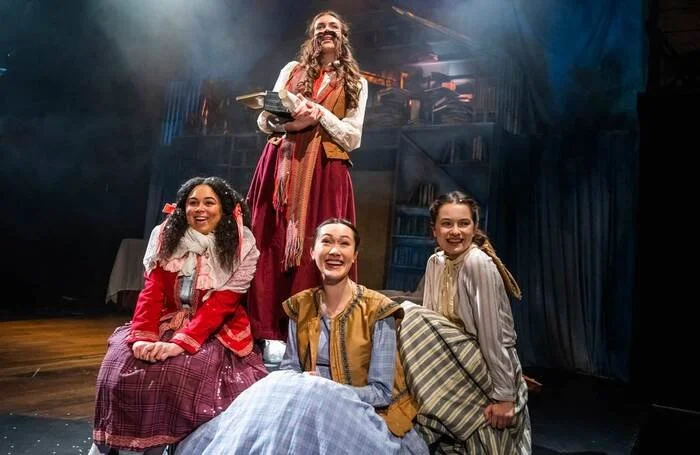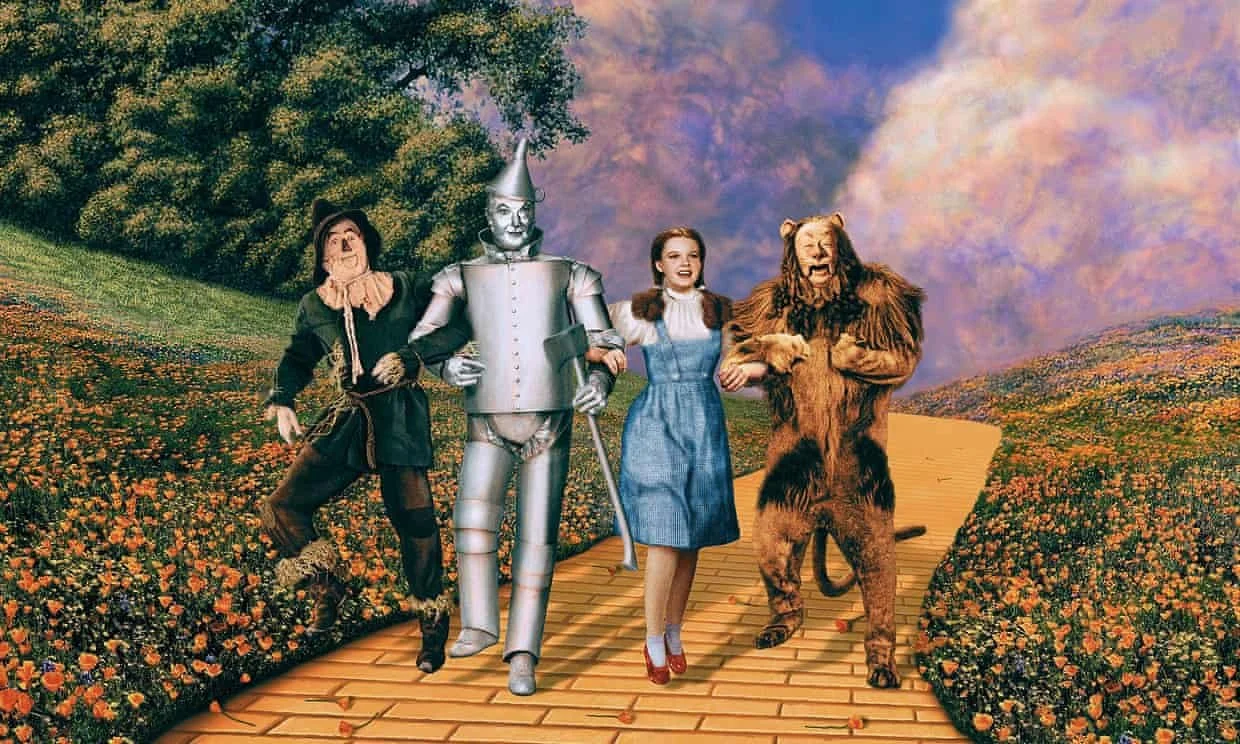World Book Day – Top 10 Bookish Musicals (Part 2)
Hopefully you saw our first part of our World Book Day celebrations earlier on today (click here) so here’s the second instalment, Besties!
Oliver Twist by Charles Dickens
Oliver Twist, or The Parish Boys’ Progress as it was also known, was the second novel of arguably one of the greatest authors of the Victorian era, Charles Dickens and originally released serially every month in Bentley’s Miscellany magazine between 1837 and 1839. Dickens often used his works to comment on the social issues of the day and ‘Oliver Twist’ was no different. He paints a grimy, unjust system flung upon a helpless, innocent, lonely orphan, who with no mother or prospect of ever leaving the workhouse is left with really one wish: “Please sir, I want some more.” What Oliver didn't know is that one wish would Twist his world around and life as he knew it would never be the same again.
It’s this story of survival against all odds, against a backdrop of historical British nostalgia along with thoroughly realised characters that inspired Lionel Bart to turn it into a musical after watching David Lean’s film of the same name in 1948, determined to make it better than any American musical ever written. Bart may not have known Victorian London, but he certainly knew the East End of London, full of life, grit and community. It wasn’t until over a decade later in 1959 that Bart started writing the music for Oliver!. He’d spend an hour on each song saying, ‘Songs should be like sneezes — spontaneous.’ and famously not being able to read or write down music he would record his songs into a dictaphone and send them to a transcriber. But with earworms like ‘As Long As He Needs Me’, ‘Food, Glorious Food’, ‘Who Will Buy?’ and ‘Where is Love?’, ‘Consider Yourself’, ‘You’ve Got To Pick A Pocket or Two’ and ‘Oom-Pah-Pah’ ...maybe he was onto something.
With a record breaking Original West End run in 1960, a Broadway transfer (winning Bart the Tony Award for Best Original Score), countless revivals all over the world, a blockbuster film and even an Andrew Lloyd Webber search for Nancy - Oliver! and the story of Oliver Twist will go down in history.
Little Women by Louisa May Alcott
Louisa May Alcott wrote Little Women after her publisher asked her to write something about girls, something that would engage the wide populous of the girls of America. Feeling like she knew very little about girls apart from her sisters and always preferring the company of boys, Alcott wasn’t sure. However she said she’d try and henceforth we were graced with a semi-autobiographical, genre breaking novel in 1868, covering the love and lives of four sisters, each with their own personalities and qualities. It may be a story in a specific time and place, but the book has been translated into many languages reaching far corners of the world for over 150 years, proving that people everywhere connect with Jo, Beth, Meg and Amy.
Jason Howland (music) and Mindi Dickstein (lyrics), with Alan Knee (Libretto) brought Little Women to Broadway in 2005 fronted by Sutton Foster as the lead. The musical weaves the melodrama of Jo’s Operatic Tragedy throughout the girls’ becoming. We go on an epic journey, which may seem gentle on the surface, but Alcott’s pages are brought to life with love, friendship, war, loss and what being a young woman, or precisely four young women, was really like - what may have seemed little was really quite the opposite.
The musical didn’t last particularly long on Broadway, however ‘Astonishing’ can be found in every beltresses rep folder to this day and if that is not a story about endurance, I frankly don’t know what is.
Photo credit: Tristram Kenton
Goodbye To Berlin by Christopher Isherwood
Another semi-autobiographical novel Goodbye to Berlin by Christopher Isherwood was written in 1939 in response to the collapse of the Weimar Republic and rise of the Nazi party throughout that decade. Isherwood had travelled to Berlin in 1929 for ten days but while out there fell in love with a German boy and stayed in this underworld of “Jazz and Liquor”, brothels and bars until forced to flee in 1933. His story loosely follows his real-life relationship with British cabaret star Jean Ross or Sally Bowles as she is referred to, with whom he shared an apartment with. Goodbye to Berlin, not only documents the fall of a city to a tyrannous dictator, but how society can collapse, how light can be extinguished and what we have to lose if we are all too inclined to turn the other way.
Originally Goodbye to Berlin was adapted for Broadway as a play called, I Am a Camera by playwright John Van Druten in 1951, but we’re here to talk about the iconic musical Kander and Ebb’s Cabaret which took to the stage in 1966. Initially the music was to be played at the start as a prelude to the play to set the scene of Berlin’s seedy jazz underbelly but as the team started writing the songs, they realised they could slot them in throughout the piece making it a more traditional book musical, making the songs more deliberate to further the plot. The harsh retelling of the story in the scenes juxtaposed the Cabaret numbers, which often broke the fourth wall and invited the audience to be complicit with what was going on. A mirror was included in the set as the audience walked in with the front cloth already raised. This was something undone and whose sole purpose was to make an audience think, question and re-evaluate what they know.
The show’s legacy is in its number of performances worldwide, endless list of Awards and Nominations, in the 1972 film starring Liza Minelli, in pop culture and in the most recent and current, immersive revival at the Playhouse Theatre, now known as the Kit Kat Club. John Kander said “I think, unfortunately, as long as people act out of hatred, Cabaret will always be pertinent. Wouldn’t it be great if you went to see Cabaret and said, “I don’t get it, the world isn’t like this.”.
The Color Purple by Alice Walker
The Color Purple is the Pulitzer Prize winning novel for fiction by author Alice Walker, making her the first black woman ever to receive the prize. Walker mentions Tolstoy, Dostoyevsky and Shakespeare as some of her inspirations, which might reflect why her stories give us such pivotal emotional journeys. It follows Celie, a fourteen-year-old girl living through such hardships, surviving the southern states of America in the early 20th century. We get to hear her voice through her written letters to God, where else to turn when you feel abandoned and close to losing hope. However, this is ultimately a tale of overcoming adversary, of female empowerment and discovery. It is regarded as one of the most controversial books of our time after being targeted by censures not liking its explicit content or language but like Celie, the book has triumphed above the critics and has lived on through film in 1985 directed by Steven Spielberg, starring Whoopi Goldberg and Oprah Winfrey as well as the Broadway musical in 2005.
Starring LaChanze as Celie, this production went on to perform over 900 shows, making over $100 million and has since gone on to be told all over the world in various revivals, propelling our very own Cynthia Erivo in the role to stardom across the pond after receiving the Tony Award for her critically acclaimed performance. The gospel tone to the music exudes expression and soul, making you feel every note and therefore every word. Filming has already begun on a feature film of the musical produced by Winfrey with Fantasia Taylor as the lead. About the project Oprah states, “Everything comes from the original words of Alice Walker, which were grounded in love.”
The Wonderful Wizard of Oz by L Frank Baum
This children’s novel was released at the turn of the century in 1900 and Baum was inspired by all that was around him. If it wasn’t for his childhood nightmares of a scarecrow chasing him, or for his window display of a man made of scrap bits of metal, or for a close family bereavement of a young child called Dorothy, maybe the Wizard of Oz we know would sound and feel very different. He lived in dusty Kansas, suffering from drought and joked that the farmers would have to put green goggles on the horses for them to eat the dry ground and it was then he travelled to Chicago to escape the depression a more metropolitan place, still at the very beginning of its development, full of promises yet Baum was still to be fulfilled. The book was constantly in demand, selling out as soon as new ones had printed and by the 1950’s, over three million copies had been sold. It must be one of the most famous stories ever told after all is stated as being "America's greatest and best-loved homegrown fairytale.", partly because of the famous 1939 musical film starring Judy Garland in technicolour, but that wasn’t the first musical adaption of this classic story.
Photo credit: Allstar/MGM/Sportsphoto Ltd
In 1902, Baum wrote this musical extravaganza called ‘The Wizard of Oz’ with added jokes by Glen MacDonough and original music by Paul Tietjens in order to promote the book further. It opened in Chicago before moving to Broadway for over 200 performances and then later embarking on a national tour. Now that’s what I call a book tour. Beats queuing up outside Waterstones for a quick autograph anyway. This original show was used and talked about in the rooms of MGM when creating the film we all know and love today with music written by Harold Arlen and Yip Harburg. This music has stood the test of time and ‘Somewhere Over The Rainbow’ not only won the Academy Award for Best Song but has been adopted by many people all over the world as a message of peace and freedom.
Many adaptations have come and gone, including a revival by the Royal Shakespeare Company in 1987 but most recently Andrew Lloyd Webber’s 2011 revival at the London Palladium after another search but this time for Dorothy. Not only that but this book written so long ago also inspired The Wiz: The Super Soul Musical "Wonderful Wizard of Oz", bringing the freshness of African-American culture to the story with the instantly classic songs ‘Ease on Down the Road’ and ‘Home’ winning 7 Tony Awards including Best Musical in 1975, adapted to a film with an all-star cast included Diana Ross as Dorothy and Michael Jackson as Scarecrow in 1978. We also couldn’t mention the Wizard of Oz without sneaking in a mention for a small musical you may have heard of: Wicked. Now I know theoretically it is based on George Maguire’s 1995 novel, however without Baum we may never have gotten ‘Defying Gravity’ and that’s not even worth thinking about.
So, that’s it for our Top Ten Bookish Musicals to celebrate World Book Day! Do you agree with our choices, Besties? Let us know in the comments below which bookish musical you love the most. And remember to keep reading and keep telling stories!



